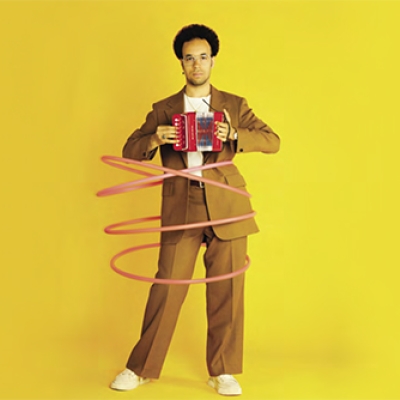Théo Ould
Théo Ould

At the age of 25, Théo Ould became the first accordionist to be nominated as a Newly Discovered Talent at the Victoires de la Musique Classique awards.
Biography
‘Served by a masterly technique (an unbelievably supple left hand and an inexhaustible wealth of phrasing), Théo Ould’s interpretations show a personality expressing itself naturally in terms of the imagination, with all the enchanting freshness that word implies.’ Pierre Gervasoni – Le Monde
Théo began his musical education at the Marseille Conservatoire at the age of 6: ‘When I held the accordion between my hands for the first time, I was fascinated both by the sound it made and by the object itself, halfway between a computer keyboard and a spaceship: a machine to play with in every meaning of the word.’
In 2018, while still a student at the Paris Conservatoire (CNSM), together with his friend and fellow-student, cellist Lisa Strauss, he founded the Philia Trio (violin, cello and accordion). The ensemble recorded its first album, Madness, in 2022 under the auspices of the Festival d’Auvers-sur-Oise. The same year he launched a series of podcasts – ON/OFF – discussing sound, interpretation and the musical profession in general, with guest artists including Lucile Boulanger, Théotime Langlois de Swarte and Erik Orsenna.
The history of the accordion is still in the making, as its repertoire, technique, and even its construction continue to evolve. Following in the footsteps of his teachers at the Paris Conservatoire, Théo is fully engaged in the same artistic debate: how best to make sure that the instrument takes its rightful place in the classical repertoire.
And so as a soloist he freely plays the music he loves, Bach, Haydn, and Mozart, without feeling at all constrained by the burden of tradition – at the same time collaborating with composers of today such as Régis Campo, Tomás Gubitsch and Philippe Hersant, to expand the instrument’s work catalogue and exploit all its capabilities.
Passionate about opera as well as the UK rock scene, he has freely rewritten the conventions of the classical concert – not in any way to sacrifice the music, but rather to let it be heard in a different way, one in tune with our time.
